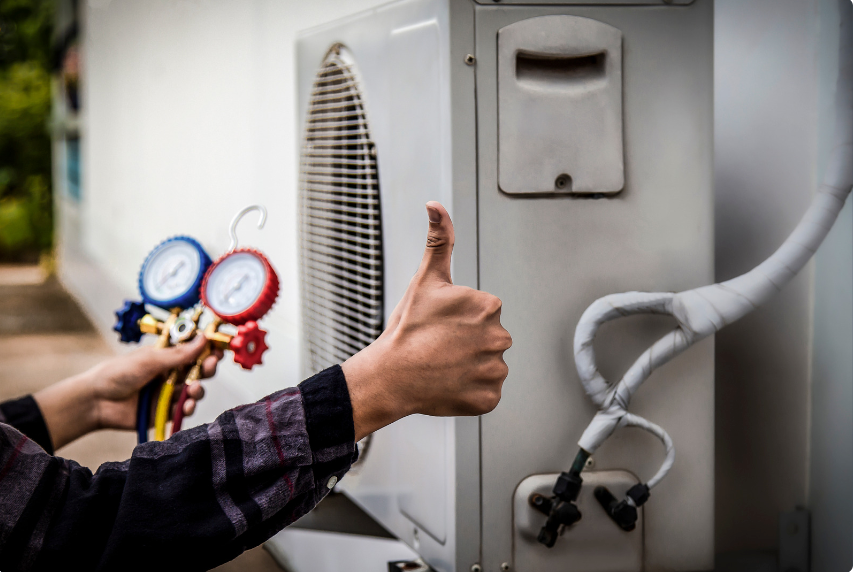321-245-1400
321-245-1400

Navigating the landscape of HVAC refrigerants can be challenging, especially when your system relies on phased-out refrigerants. The phase-out of certain refrigerants, such as R-22 and R-410A, is part of an effort to reduce environmental impact and comply with new regulations. While it is necessary to continue environmental protection through new regulations, some people may find the stresses of obsolete systems and dwindling refrigerant options to be a lot. Let's examine the current options for outdated HVAC systems and observe possible avenues to allow affected HVAC systems to continue operations.
R-22 (Freon): R-22, commonly known as Freon, has been widely used in residential air conditioning systems for decades. However, due to its high ozone depletion potential, it has been phased out. The production and import of R-22 were halted in the U.S. as of January 1, 2020, but existing stocks and recycled R-22 can still be used for servicing older systems.
R-410A: R-410A is another common refrigerant used in many modern residential and commercial HVAC systems. While it does not deplete the ozone layer, it has a high Global Warming Potential (GWP). Due to its environmental impact, R-410A is also being phased out in favor of refrigerants with lower GWP. The phase-out process is gradual, giving the industry time to transition to more sustainable alternatives.
One option for systems using phased-out refrigerants is to continue using recovered refrigerant. The EPA allows the reuse of recovered refrigerants under specific regulations (40 CFR Part 82, Subpart F). This can be a cost-effective solution, as recovered refrigerant can be used to service existing systems without the need for immediate replacement. However, the availability of recovered refrigerants may be limited, and their use is only a temporary solution as stocks will continue to diminish over time.
Retrofitting involves modifying an existing HVAC system to accommodate a different refrigerant. For R-22 systems, compatible alternatives include R-407C or R-421A. For systems using R-410A, alternatives such as R-32 or R-454B are available. Retrofitting can be a viable option if the existing system is in good condition and the costs of modification are lower than replacement. It is essential to consult with a certified HVAC technician to determine the feasibility and cost-effectiveness of retrofitting your specific system.
Not every system can be salvaged. In some cases, replacing the entire HVAC system may be the most cost-effective and sustainable option. New systems designed for environmentally friendly refrigerants not only comply with current regulations but also offer improved energy efficiency, which can lead to long-term savings on energy bills. Upgrading to a new system eliminates the
challenges associated with phased-out refrigerants and ensures compatibility with future refrigerant standards.
The first step is to conduct a professional assessment of your current HVAC system. A certified technician can evaluate the condition of your system and recommend the best course of action, whether it involves using recovered refrigerant, retrofitting, or replacing the system.
Consulting with certified HVAC professionals is crucial. They can help you navigate the complex regulations surrounding refrigerant phase-outs and provide expert advice on managing the transition. Professionals can also ensure that any modifications or replacements are done safely and efficiently.
Regular maintenance is essential to keep your HVAC system operating efficiently. Schedule regular check-ups with a professional to address any issues promptly and plan for necessary upgrades or replacements in advance. Proactive planning can help you avoid unexpected costs and downtime.
Addressing the use of phased-out refrigerants in your HVAC system is essential for compliance with EPA regulations and overall environmental protection. Certified HVAC recyclers, like Eco Care, ensure that refrigerants are managed safely and responsibly. With proactive planning and consulting, experts can help you navigate the transitions surrounding phased-out refrigerants, ensuring the continued operation of your HVAC system.
Eco Care is certified to recycle and resell refrigerants according to EPA regulations. Our trained professionals are happy to assist in managing your refrigerants responsibly. We offer a wide variety of services including equipment salvage, appliance removal, and recycling and disposal of HVAC refrigerants to name a few. For more information on HVAC and refrigerant recycling, contact Eco Care.